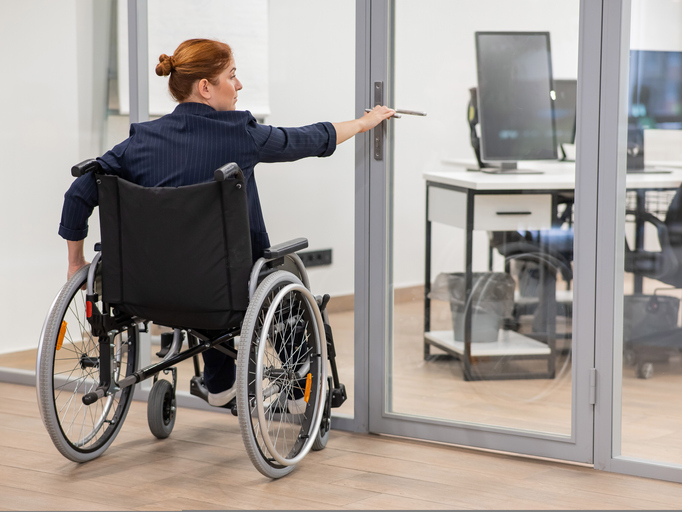According to web designer and author Cindy Li, “We are all just temporarily abled.” She was referring to user experience (UX), but it can apply to many aspects of Global Mobility as well.
Competition for talent is fierce, and we all recognize that diversity is good for business. Making “mobility” accessible for disabled workers – even if mobility is a challenge for them – wisely broadens the talent pool.
On a practical level, business travel of any duration brings up many considerations. Globally, every country has their own disability laws and acts that typically cover areas like healthcare and education access, requirements for public buildings and transportation, and discrimination protections. Some countries’ laws include mental health in their descriptions of rights and protections.
For example, the UAE clearly sets out its Rights of People of Determination — a term that replaced ‘people with special needs’ — and formed a national committee that’s responsible for those rights.
What these laws mean on the ground in each location varies, and certainly private spaces can present a wide range of challenges. Will a corporate meeting space be accessible to everyone? Is special accommodation required for presentation materials – be they audio or visual?
Even in public places, a disabled traveler may need extra time or physical assistance to navigate airports or train stations. The EU’s rights for travellers with a disability or with reduced mobility spells out exactly what assistance is available when traveling by air, train, bus, or ship. Also note the EU parking card for people with disabilities is recognized in member countries for accessible parking and facilities.
A traveler may need visual assists and/or a service animal. Allowance for a portable oxygen tank, dialysis machine, wheelchair, or other medical device may require extra space or a charging source. Arranging car travel ahead of time helps to secure a vehicle that meets the person’s needs.
In addition to logistics and planning, an inclusive culture is key to maximizing the talents of businesspeople with different abilities, whether due to temporary injury or permanent condition. The more we all think about how to pave an accessible path in business, the greater success we can achieve in the workplace.
——————————-
Find resources like the ones above – and more – in Living Abroad’s International Relocation Center ‘Health and Safety’ section.
Written by Ellen Harris, GMS, Product Manager, Content Group

